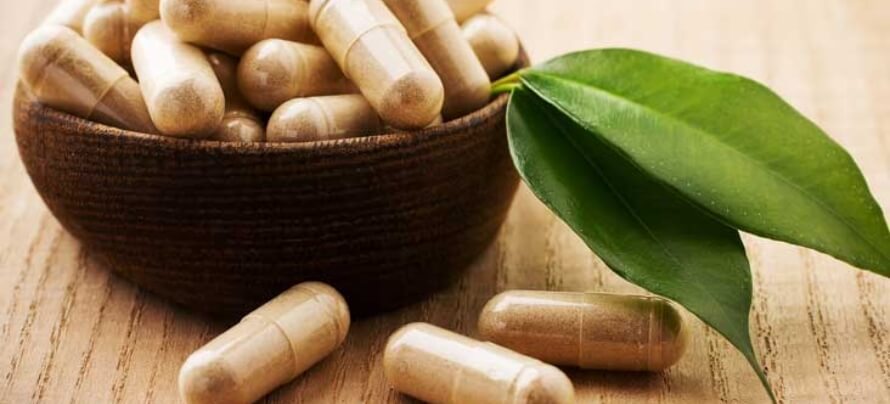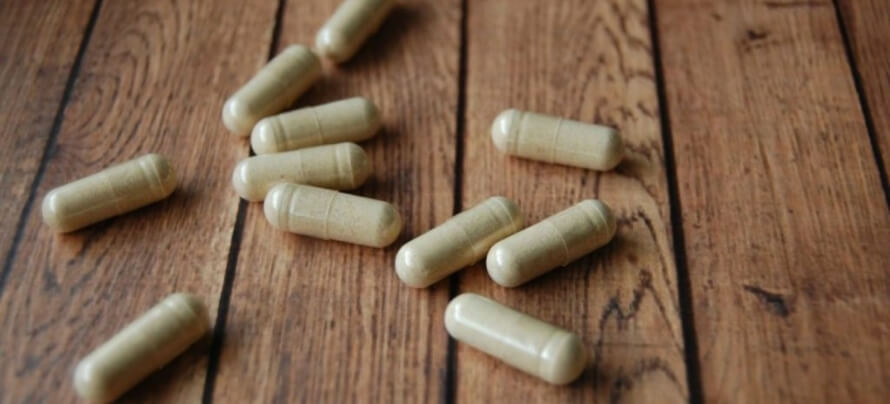Key Takeaways
- Fenugreek is an Indian seed with the ability to help regulate blood sugar levels and potentially improve libido.
- Fenugreek is ineffective for weight loss and improving skin and hair health, despite what many claim.
- Fenugreek seems like a great supplement to consider for older individuals who want improved sexual health as well as glucose control and you may be able to get these benefits from the seeds.
Ever met someone who flatout refused to take supplements aside from their Flintstone gummies?
White powders and unlabelled pills can be intimidating to some. The good news, though, is that you can many of the benefits of supplements from certain foods.
Many times, foods and supplements are more or less the same thing.
Garlic, blueberries, cranberries, turmeric—before you buy them as supplements, why not see if you can just visit a grocery store and save money by adding them to your shopping list?
One of these is fenugreek.
Not only is it a traditional Indian remedy for ailing masculinity but it is also a seed, easily ground into fenugreek powder, and it’s even been used to create baked goods in some studies.
Clearly, a tastier way to take your supplements than just downing them in a handful of capsules.
Of course, it’s not like I’m just saying to use fenugreek in everything from now on. Sometimes we just want some regular bread or traditional sauces, and I figure plopping fenugreek into your spaghetti sauce will make a few Italian chefs cry.
But when you want to bake a treat to improve libido and blood sugar control, fenugreek has your back.
In this article, you’re going to learn the benefits of fenugreek on libido, hormones, and blood sugar control as well as claims that fenugreek fails at.
- What Is Fenugreek?
- Why Do People Supplement with Fenugreek?
- The Top 3 Fenugreek Benefits
- Fenugreek and Blood Sugar Control
- Fenugreek and Libido
- Fenugreek and Testosterone
- What Does Fenugreek Not Do?
- Fenugreek and Weight Loss
- Fenugreek and Prostate Health
- Fenugreek and Skin Health
- What Is The Clinically Effective Dose of Fenugreek?
- What Are the Most Common Fenugreek Side Effects?
- What’s the Best Kind of Fenugreek Supplement?
- Should You Take Fenugreek Supplements?
- The Bottom Line on Fenugreek
Table of Contents
+What Is Fenugreek?
Fenugreek is the common name for the plant Trigonella foenum-graecum, and its seeds are used in traditional Indian medicine (known as Ayurveda) for general health purposes as well as appetite stimulation and improving masculinity.
The plant itself is quite versatile. The leaves have been used as a spice, in sauces, and in some baked goods for as long as it’s been used as a supplement.
The seeds, which contain most of the supplemental benefits, can also be ground into a powder and used to create baked goods or added to sauces and curries used in Indian cuisine.
Why Do People Supplement with Fenugreek?

The major claims of fenugreek related to either sexuality or its role as a glucose regulating agent.
In regards to sexuality, most claims around fenugreek place it not as a standard testosterone booster but rather as something that can increase testosterone while reducing levels of the more potent androgen DHT. Despite being claimed to be a testosterone booster you sometimes see it being recommended to reduce hair loss.
Some people also claim it helps with the sexuality of aging men, and claims surrounding it increasing seminal load size.
The health effects attributed to fenugreek supplementation tend to be better insulin sensitivity and blood sugar control (keeping blood sugar at a healthier level), which would make fenugreek a good food for diabetics to consume.
The Top 3 Fenugreek Benefits
The main three benefits of fenugreek are:
- Improving blood sugar control
- Improving libido
- Increasing testosterone under certain conditions
Let’s take a look at each one.
Fenugreek and Blood Sugar Control
Fenugreek is investigated for its role in glucose management primarily due to three reasons—it’s 4-hydroxyisoleucine content, it’s diosgenin content, and it’s fiber content.
4-hydroxyisoleucine (4-HO) is similar to the amino acid L-leucine, the main branched chain amino acid most involved in helping muscles grow. This particular molecule, however, can directly stimulate insulin secretion and, at times, has even been linked to improving insulin sensitivity.
Diosgenin is a molecule with structure sort of similar to cortisol. It’s a lesser known molecule in fenugreek and seems to take a different approach from 4-HO.
It seems to make adipocytes (fat cells) healthier, increasing their glucose uptake and consumption through a receptor known as PPAR gamma. If you’ve ever heard of the group of pharmaceuticals called “thiazolidinediones,” this is their molecular target.
Finally, the fiber component of fenugreek simply acts as other fibers would—reducing the rate of glucose absorption from the gut and thereby limiting any abnormal spikes in glucose.
The seeds contain 45 to 50% fiber by weight, about a quarter of it being soluble fibers, and said fibers might also have some properties beyond the gut. Fenugreek fibers have been noted, in some animal studies, to improve the effects of insulin—helping your body better process carbohydrate.
So ultimately, we have a supplement with three different active compounds in it all aimed at improving the same thing. On paper, fenugreek looks amazing. What about the human studies on the matter?
The acute studies, with the fibers mostly, show that the fibers do indeed work and can prevent acute spikes in blood glucose when fenugreek is used in cooking or if the fibers are taken straight with water. The seeds may also reduce glucose but the effect is more mild.
Longer studies lasting a few weeks tend to note benefits with fenugreek that are greater than placebo, in regards to improving HbA1c levels (a biomarker thought to indicate damage associated with diabetes) and fasting blood glucose.
This view seems to hold in meta-analyses on the topic, where fenugreek is seen as effective but there are calls for more studies of higher methodological quality. Most studies on fenugreek seem to have rather small sample sizes, and many are as old as I am.
Ultimately, fenugreek has enough evidence to demonstrate that it helps improve glucose management. However, there are many compounds in fenugreek that could work, and better studies are needed to determine the precise magnitude by which they work. The future is bright for fenugreek studies.
Fenugreek and Libido

Fenugreek has been investigated for its effects on sexual health and well-being due to a history of being used by older men to improve sexual virility.
Surprisingly, although there’s one study showing that supplementation with fenugreek improves sexual functioning in older men, most studies have actually been conducted on women.
Fenugreek supplementation has been shown in younger women to improve sexual functioning, with one other study showing an improvement in post-menopausal symptoms in older women.
These effects parallel maca root in some sense, as supplemental libido enhancers are rarely investigated in women.
It doesn’t seem, at this point in time, to be a simple “take this herb and become hornier” effect but there does appear to be a general improvement in overall happiness with sexuality.
While these studies don’t tend to find any common threads in hormonal changes associated with the improvement in sexual well being, it does seem that if you simply ask the participants if they have better sex lives that fenugreek seems to help.
Overall, fenugreek seems to be a viable option for improving sexual health in both men and women.
Fenugreek and Testosterone
Fenugreek is one of the first herbs to be associated with testosterone boosting supplements, with the claim that the fenuside (thought to be the active components) content of this plant are able to increase anabolic hormones like testosterone in otherwise healthy young men.
There’s a shred to truth to this claim.
Firstly, in accordance with the preceding section, fenugreek does appear to improve sexual well-being—at times, people take “testosterone boosters” for this particular purpose. Whether or not fenugreek increases testosterone, it may improve sexuality, so at least it has that going for it.
Secondly, studies directly investigating fenugreek supplementation have found benefits to testosterone—in older men (43 to 70 years) and improving free (in other words, active) testosterone levels in men diagnosed with low testosterone (405 ng/dL on average).
So it appears that, in men with lower testosterone, fenugreek may be able to increase at the very least free testosterone levels—it may be hit or miss whether testosterone levels themselves are increased.
There is one other study where 500 mg of fenugreek was used in college aged men with no testosterone abnormalities which noted that, while exercise for 12 weeks was able to increase testosterone, the addition of fenugreek did not have an extra effect.
Fenugreek, however, did seem to curb the increase in estrogen that exercise caused.
The ratio of testosterone, relative to the more potent androgen dihydrotestosterone (DHT), was also tested to try and see if the 5-alpha reductase enzyme was affected. If it was inhibited it would mean that fenugreek could be useful for combatting hair loss, but unfortunately nothing was found.
So ultimately we have a herb that may influence androgen status but, when it comes to otherwise healthy men with normal androgen status, it seems more likely that it doesn’t do much.
Fenugreek is one of the few herbs that has some actual evidence for improving testosterone levels. Like the other herbs, though, it seems to only work to a relevant degree in men with low testosterone for one reason or another. It won’t be of much use to youth.
Honorable Mention: Fenugreek and Breastfeeding
The term “galactogogue” refers to anything that has the potential to increase milk production in breastfeeding women. While very much a niche topic, as women do not breast feed 24/7, it’s always nice to know of a few compounds with this property just in case.
Fenugreek, brewed as a tea, has once been linked to improved milk production in the mother during the infants first week of life. Brewing the fenugreek as a tea, rather than taking the whole root, is seen as important since it avoids the fat soluble components—fat soluble components are more likely to find their way into the breast milk, and by extension, the infant.
Many other studies have been conducted with teas and products containing a blend of herbs, the lot of which are collected here, which suggest that fenugreek is not a cure-all in this regard and has some variability from one study to the next.
Fenugreek seems to have the potential to increase milk production in new mothers, but doesn’t seem to be the most reliable and effective option. Furthermore, most studies use teas or pills confounded with numerous herbs—evidence quality is less than ideal on this topic.
What Does Fenugreek Not Do?
Due to its partial success with increasing testosterone, claims have arisen linking fenugreek to other related aesthetic and health claims pertaining to testosterone.
Fenugreek and Weight Loss

Fenugreek’s connection to weight loss is not as disingenuous as most herbal supplements, which just throw this claim into the mix as part of a “buy 1 get 1 shill free” promotion.
Fenugreek has, at times, been linked to being able to voluntarily change people’s food preferences—this refers to what foods people would choose themselves when they eat, with fenugreek seemingly causing a shift away from fats towards carbohydrates.
This effect, referred to as a reduction of “spontaneous fat intake,” extends to both healthy and overweight subjects where supplementation of fenugreek causes them to voluntarily choose to eat less fat.
However, neither of those studies noted weight loss nor an overall reduction in calorie intake.
While fenugreek may potentially have a future in appetite-suppressing stacks, maybe alongside 5-HTP as that’s resulted in less voluntary carbohydrate intake, at this moment in time it would be disingenuous to call it a weight loss supplement.
Fenugreek and Prostate Health
Fenugreek is in a weird position where it’s claimed to be a testosterone booster but at the same time, due to having been claimed in the past to be a 5-alpha reductase inhibitor, is also stated to lessen the effects of testosterone.
As such, it’s claimed here and there to help literally anything that can be associated with raising or lowering testosterone levels to a healthier range no matter which problem you’re dealing with.
These claims extend to prostate health, where fenugreek is thought to help with symptoms of benign prostatic hyperplasia (BPH) and reduce the risk of prostate cancer.
Evidence on this topic is quite limited, and perhaps the only evidence we really have is that it doesn’t affect levels of prostate-specific antigen (PSA) when supplemented—as a general rule of thumb abnormal increases of PSA suggest a greater risk for prostate cancer and vice versa.
There have been many studies conducted with fenugreek on isolated cells, and it can kill prostatic cancer cells at a relatively low concentration thought to be related to the diosgenin content, but these studies have not even extended into the realm of rat studies right now.
Overall, evidence linking fenugreek to claims about prostate health, good or bad, is sorely lacking at this point in time and no major conclusions can be drawn yet.
Fenugreek and Skin Health
Fenugreek seeds appear to be purported as a skin care superfood, a claim that extends into fenugreek supplementation.
Scientifically, the claims seem rather unfounded. Available evidence is either conducted in a kind of fish called a sea bream (yeah, I didn’t know studies were conducted in them either) or is in vitro on cancerous cells or mice with skin cancer.
Or in other words, some researchers just decided to test out fenugreek seeds to see if they did anything on these parameters. If they did, and the effects were notable, further research would be conducted to then see if it was practical and worth it.
Unfortunately, this is not the case, and no studies appear to exist showing fenugreek a viable (or even practical) option for improving skin health—this also goes for any aesthetic purpose attributed to fenugreek, including hair and nails.
Fenugreek simply does not have any evidence to support a beneficial effect on human skin at this point in time.
What Is The Clinically Effective Dose of Fenugreek?
The ideal dose of fenugreek is not currently known since dosing, concentration (of the fenuside content), and how fenugreek is taken vary in all the human studies we currently have—the lack of consistency makes it hard to guess what the “ideal” dose is.
So we only have a general idea of the range, and it appears to be at least 5 grams of the seeds themselves if you want to use them in cooking. Most studies use in the range of 5 to 25 grams, however.
For supplements, about 400 to 600 mg of the fenugreek extract seems to work. These are concentrated extracts, however, and when the label has “total fenusides” on it you should aim for at least 25%, ideally more around 50%.
Of course, since a major effect of fenugreek is how it makes you feel you can play with the dosage a bit here and there to see whether a higher or lower dose works better for you.
What Are the Most Common Fenugreek Side Effects?
Fenugreek is a well tolerated supplement with, well, a niche side-effect.
It might make your bodily secretions have the faintest aroma of maple.
This odd side-effect was initially thought to be indicative of Maple Syrup Urine Disease, a defect of amino acid metabolism causing maple scented urine, but was later found to be wholly unrelated.
Turns out it’s just something like curry, where the molecules that confer the smell of the plant just leave your body in it’s fluids like sweat and urine still smelling like the plant.
It doesn’t happen all the time, and when it does it’s not a medical concern at all, but it can be an inconvenience if you prefer the all natural “musk” scent and aren’t pretending to be Canadian—our musk is already maple scented.
Beyond this oddity, fenugreek has not been noted to interact with any pharmaceuticals at this point in time and has been cleared of interacting with two of the most prominent enzymes of drug metabolism CYP3A4 and CYP2D6. While I can’t say this with absolute assurance, chances of drug-drug interactions seems low.
There is also a potential allergy issue, so if you have a known allergy to fenugreek don’t use the supplements. There is potential cross-reactivity with peanuts, so if you’re allergic to peanuts then tread carefully with fenugreek supplements (perhaps buy the seeds themselves as a test, or just don’t risk it if your allergies are very bad.)
What’s the Best Kind of Fenugreek Supplement?

Fenugreek does not appear to have many issues in regards to what “type” of fenugreek you should use, unlike many other supplements.
While fenugreek seeds tend to the the source of all the “good” within this plant, once it’s ground into fenugreek powder what happens after that is essentially a non-issue. Whether it’s concentrated into a pill, used to cook bread, or simply mixed into a drink is all acceptable.
Should You Take Fenugreek Supplements?
Fenugreek supplements shine for people who want the major two effects (well, three outlined in this article, but androgens and libido go hand in hand sometimes) of better glucose control as well as an improvement in sexual well being.
If you happen to be a man, or a woman in fenugreek’s case, who may be a bit insulin desensitized and can’t handle carbohydrates and you want something to help with your bedroom habits then, fenugreek can be a nice one-two punch.
For others, fenugreek could be seen as an alternative to maca root. They have similar properties in improving sexual well being in both sexes, but maca is more popular for this as it’s wholly non-hormonal—if, for some reason, you can’t take maca then consider fenugreek.
If you don’t want any changes to your libido or sexual well being, but want improved glucose control, honestly there are probably better options out there for you. Berberine, perhaps, or simply switch to a sustainable lower carbohydrate diet.
The Bottom Line on Fenugreek
At the end of the day, fenugreek seeds are a viable option for improving glucose control and improving sexual health. They may also increase testosterone but, currently, it seems to only be relevant to those with suboptimal testosterone levels.
Can’t really say they do much beyond that however, as the claims surrounding them improving skin and hair health as well as those claiming it can help with weight loss seem disingenuous at best. While increasing fiber intake is seen as beneficial for weight loss overall, the fiber itself is not a fat burner.
Perhaps the most interesting fact is how fenugreek seeds are, in fact, seeds. They are among the supplements that could be in your kitchen rather than your drug cabinet, and cooking with fenugreek may be an interesting idea for anybody who wants to experiment with making tasty carbohydrate treats for people who shouldn’t really be having that many carbs.
And for that one reason alone, fenugreek seeds being put into baked goods to make them healthier for people who shouldn’t be having lots of baked goods in the first place, I have to give fenugreek two thumbs up. The improved sexual well being is just a happy little side-effect.










